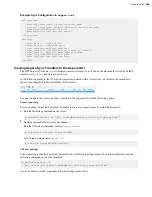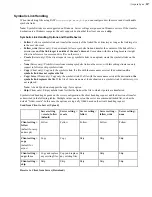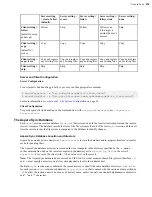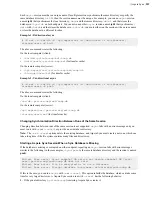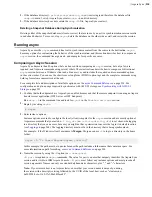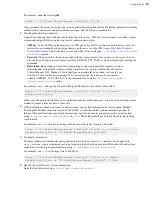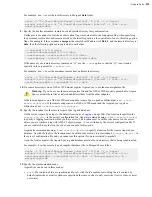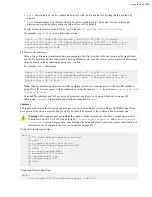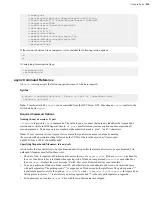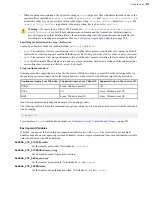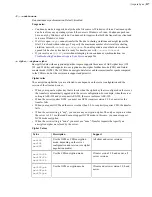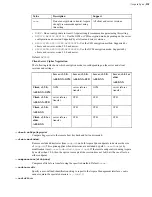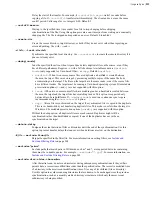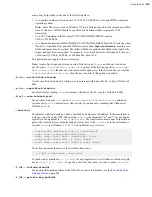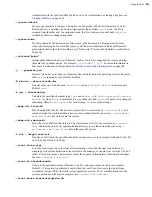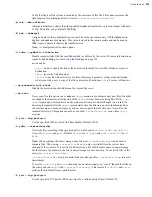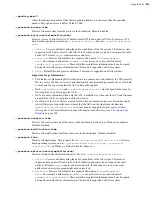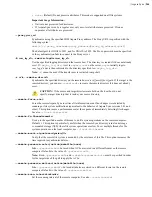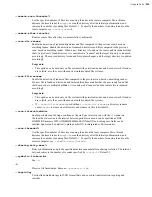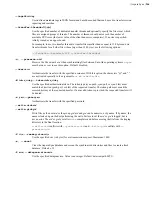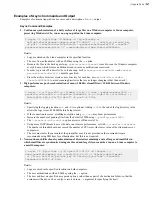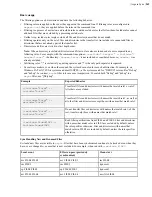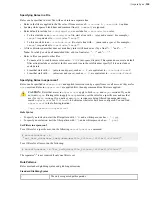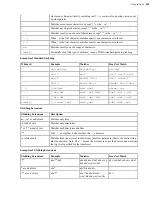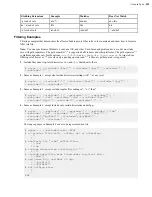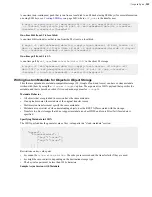
| Aspera Sync |
240
mtime
may be specified in any one of the following ways:
• As a positive number of seconds since 1970-01-01 00:00:00, for Unix and POSIX-compliant
operating systems.
Note:
Some file servers, such as Windows NT, use a different epoch for the recursive modified
time. In this case,
MTIME
should be specified as a duration relative to present or UTC
timestamp.
• As a UTC timestamp with the format YYYY-MM-DDTHH:MM:SS, such as
2015-01-01T08:00:00.
• As a duration formatted as DDd HH:MM:SS or WWw DDd HHh MMm SSs. Directories whose
"mtime" is older than Now minus
MTIME
are not scanned.
Input requirements:
Leading zero
fields and spaces may be omitted. The leftmost fields are optional, but fields to the right of the
largest unit specified are required. For example, to exclude directories older than 24 hours, you
could specify 1d 0:0:0, 24:00:00, or 24h 00m 00s, but not 1d.
This option does not apply to the root directory.
Note:
Aspera Sync stops and returns an error if the first run of
async
and the next run do not
use the same
--exclude-dirs-older-than
option. If the first run specifies
--exclude-
dirs-older-than
, then the next run must use this option, too. If the first run does not include
--exclude-dirs-older-than
, then the next run fails if this option is specified.
-G
size
,
--write-block-size=
size
Use the specified block size for writing.
size
is an integer with units of K, M, or bytes. Default: 64
MB.
-g
size
,
--read-block-size=
size
Set block size for reading.
size
is an integer with units of K, M, or bytes. Default: 64 MB.
-H
val
,
--scan-intensity=
val
Scan at the set intensity.
val
can be
vlow
,
low
,
medium
,
high
, or
vhigh
.
vlow
minimizes
system activity.
vhigh
maximizes system activity by continuously scanning files without rest.
Default:
medium
.
--host=
host
Synchronize with the remote host that is specified by hostname or IP address. If the remote host is
a cluster, enter the cluster DNS. When using
--host=
, the characters "@" and ":" are not treated
specially in the argument to
-r
or
--remote-dir
. The transfer username cannot be specified as
part of the remote directory filepath. Instead, it must be set with
--user=
or in the environment
variable
$user
(on Windows,
%USER%
). Allowed forms are as follows:
--remote-dir
user
@
host
:/
rdir
# (old method)
--user
user
--remote-dir
host
:/
rdir
--user
user
--host
host
--remote-dir /
rdir
--remote-dir
host
:/
rdir
# (uses $user)
--host
host
--remote-dir /
rdir
# (uses $user)
The following means the same as the first three lines above:
-r /
rdir
--user=
user
--host=
host
For backward compatibility,
-r A:/
rdir
for any single letter
A
is still taken as a Windows path,
not as
--host A -r /
rdir
. To specify a one-letter host name
A
, use an explicit
--host=A
.
-I
file
,
--include-from=
file
Scan and include paths specified in the filter
file
. For more information, see
on page 248.
-i
file
,
--private-key-path=
file

